Autism Behavior Consultants
Explore the profound impact of autism behavioral consultants. Discover how they transform lives with expertise and compassion.


Understanding Autism Behavioral Consultants
Autism Behavioral Consultants play a crucial role in supporting individuals with autism spectrum disorder (ASD) and their families. Understanding the role and importance of these consultants, as well as their qualifications and training, is essential in comprehending the impact they have within the autism community.
Role and Importance of Autism Behavioral Consultants
Autism Behavioral Consultants are professionals who specialize in designing and implementing behavior intervention plans to address the unique needs of individuals with autism. Their primary goal is to enhance the individual's quality of life, promote skill development, and reduce challenging behaviors.
These consultants work closely with individuals diagnosed with autism, as well as their families, caregivers, and other support teams. By utilizing evidence-based practices and individualized approaches, they help individuals with autism achieve their full potential and improve their overall well-being.
Qualifications and Training of Behavioral Consultants
Autism Behavioral Consultants undergo extensive education and training to effectively support individuals with autism. Typically, these consultants hold advanced degrees in fields such as psychology, special education, or applied behavior analysis. They may also possess specialized certifications in autism intervention techniques.
Moreover, behavioral consultants receive ongoing training to stay updated on the latest research and best practices in the field of autism intervention. Continuous professional development ensures that consultants are equipped with the knowledge and skills needed to address the diverse needs of individuals with autism effectively.

Understanding the critical role and qualifications of Autism Behavioral Consultants is key to appreciating the positive impact they have on the lives of individuals with autism and their families. Through their expertise and dedication, these consultants play a vital role in promoting the well-being and success of individuals with autism spectrum disorder.
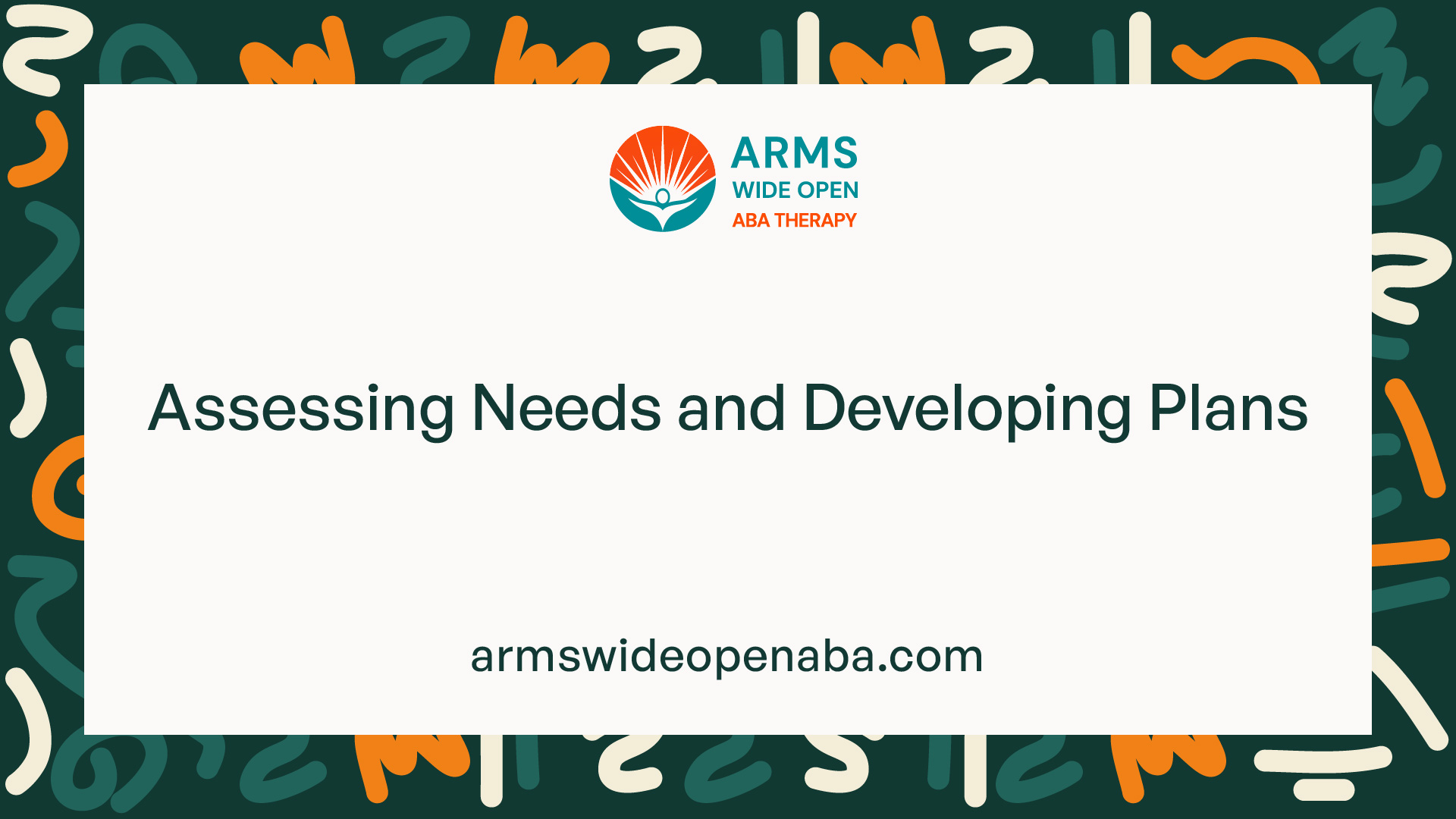
Assessing Needs and Developing Plans
When it comes to supporting individuals on the autism spectrum, a crucial aspect of the process involves assessing their needs and developing personalized plans to address those needs effectively. This section focuses on the two key components of this process: conducting assessments and creating individualized behavior plans.
Conducting Assessments
Assessments play a pivotal role in understanding the strengths, challenges, and specific requirements of individuals with autism. These assessments are conducted by autism behavioral consultants to gather comprehensive information that informs the development of tailored intervention strategies.
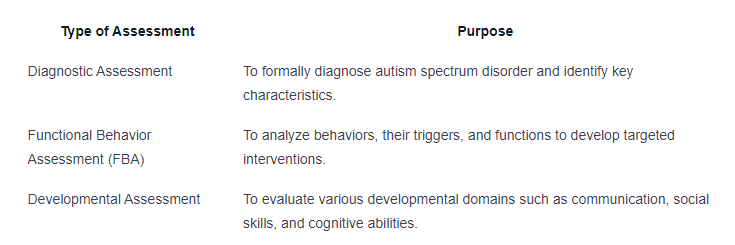
By conducting a range of assessments, consultants can gain a holistic understanding of the individual's unique profile, which serves as the foundation for creating effective behavior plans.
Creating Individualized Behavior Plans
Based on the information gathered from assessments, autism behavioral consultants collaborate with multidisciplinary teams to develop individualized behavior plans tailored to meet the specific needs of each individual on the autism spectrum. These behavior plans outline strategies and interventions aimed at promoting positive behaviors and addressing challenging behaviors.
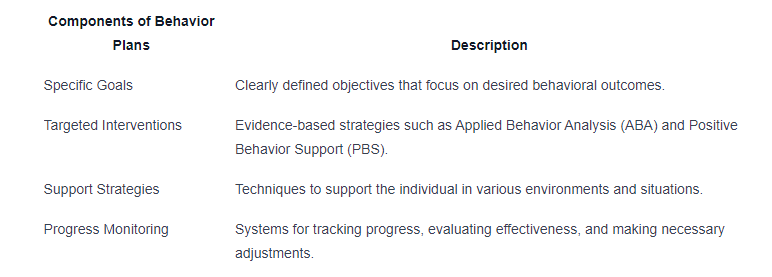
The individualized behavior plan is a dynamic document that evolves as the individual progresses and responds to interventions. Regular reviews and revisions ensure that the plan remains relevant and effective in supporting the individual's growth and development.
By conducting thorough assessments and developing personalized behavior plans, autism behavioral consultants can provide targeted and effective support to individuals on the autism spectrum, empowering them to thrive and reach their full potential.
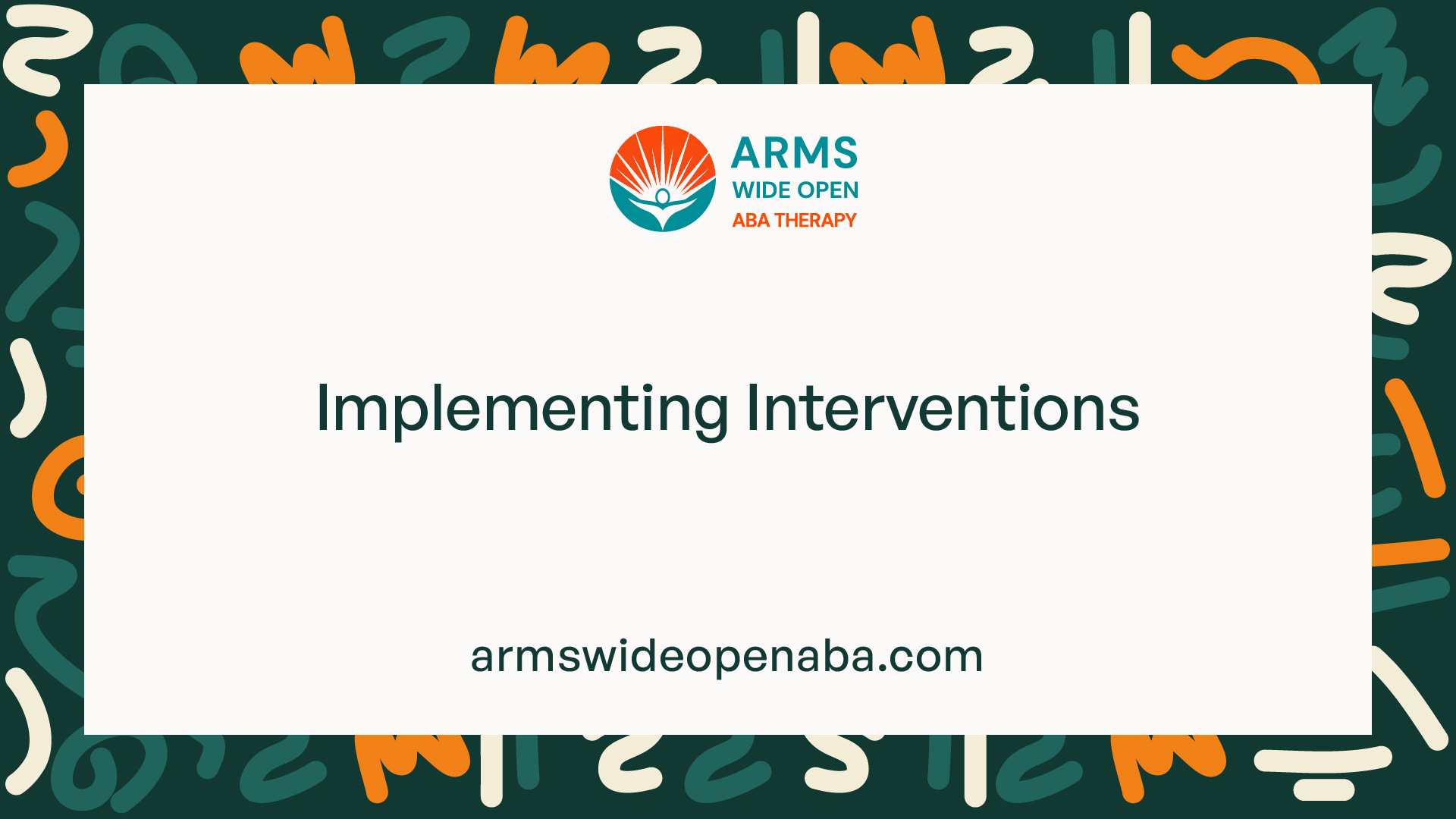
Implementing Interventions
When it comes to supporting individuals with autism, implementing effective interventions is key to promoting positive behavior and enhancing their quality of life. Two widely recognized approaches used by autism behavioral consultants are Applied Behavior Analysis (ABA) and Positive Behavior Support (PBS).
Applied Behavior Analysis (ABA)
Applied Behavior Analysis (ABA) is a systematic and evidence-based approach that focuses on understanding and improving behavior. It involves breaking down complex behaviors into smaller components and implementing strategies to reinforce desired behaviors and reduce challenging ones.
ABA interventions are tailored to each individual's unique needs and goals. The process typically involves the following components:
- Assessment: Conducting thorough assessments to identify behavior patterns, triggers, and potential reinforcers.
- Goal Setting: Establishing clear and measurable goals to guide the intervention process.
- Intervention Planning: Developing behavior plans that incorporate specific strategies and techniques to address target behaviors.
- Implementation: Implementing interventions consistently and systematically to promote positive behavior change.
- Progress Monitoring: Collecting data to track progress, evaluate outcomes, and make necessary adjustments to the intervention plan.
ABA interventions have been shown to be effective in improving communication skills, social interactions, and adaptive behaviors in individuals with autism.
Positive Behavior Support (PBS)
Positive Behavior Support (PBS) is a person-centered approach that focuses on understanding the function of behavior and implementing proactive strategies to promote positive behaviors while preventing challenging ones. PBS emphasizes creating a supportive environment that encourages individuals to succeed and thrive.
Key principles of Positive Behavior Support include:
- Assessment: Conducting functional behavior assessments to understand the purpose of behavior and identify triggers and antecedents.
- Strength-Based Approach: Building on individual strengths and interests to develop effective behavior support plans.
- Preventative Strategies: Implementing strategies to prevent challenging behaviors and promote positive alternatives.
- Teaching Replacement Behaviors: Teaching and reinforcing alternative behaviors that serve the same function as challenging behaviors.
- Collaboration: Involving families, caregivers, and interdisciplinary teams in the planning and implementation of behavior support strategies.
By combining ABA and PBS approaches, autism behavioral consultants can create comprehensive intervention plans that address the unique needs of individuals with autism, promote skill development, and enhance their overall well-being. These evidence-based interventions play a vital role in transforming lives and empowering individuals with autism to reach their full potential.
Collaborating with Families and Teams
When it comes to supporting individuals with autism, collaboration with families and interdisciplinary teams plays a crucial role in ensuring effective intervention and support. Autism behavioral consultants work closely with parents, caregivers, and a range of professionals from different disciplines to create comprehensive and tailored strategies for individuals with autism.
Working with Parents and Caregivers
Autism behavioral consultants understand the pivotal role that parents and caregivers play in the development and well-being of individuals with autism. By working collaboratively with families, consultants can gain valuable insights into the individual's strengths, challenges, and preferences. This partnership allows for the creation of personalized interventions that align with the individual's specific needs and goals.
Consultants provide guidance and support to parents and caregivers, equipping them with the knowledge and skills needed to implement behavioral strategies effectively at home. By fostering open communication and sharing progress updates, consultants empower families to become active participants in the intervention process and advocates for their loved ones with autism.
Interdisciplinary Collaboration
In addition to working closely with families, autism behavioral consultants engage in interdisciplinary collaboration with a variety of professionals to ensure a holistic approach to intervention. This collaborative effort involves teaming up with educators, speech therapists, occupational therapists, and other specialists to address the diverse needs of individuals with autism.
By leveraging the expertise of professionals from different disciplines, consultants can develop comprehensive intervention plans that encompass a wide range of skills and areas of development. This interdisciplinary collaboration allows for a more integrated and cohesive approach to supporting individuals with autism, fostering a supportive environment that promotes growth and progress.
Effective communication, mutual respect, and shared goals are essential components of successful interdisciplinary collaboration. By pooling together diverse perspectives and expertise, professionals can create a unified support system that maximizes the potential for positive outcomes for individuals with autism.
Through working closely with families and engaging in interdisciplinary collaboration, autism behavioral consultants create a supportive network that is dedicated to enhancing the lives of individuals with autism. By fostering strong partnerships and leveraging collective expertise, consultants can make a significant impact in promoting the well-being and development of individuals with autism.
Monitoring Progress and Making Adjustments
In the realm of autism behavioral consultants, monitoring progress and making necessary adjustments are integral components of ensuring effective intervention strategies. This section focuses on the crucial steps of data collection and analysis, as well as modifying strategies as needed to best support individuals with autism.
Data Collection and Analysis
One of the fundamental aspects of the work carried out by autism behavioral consultants is the systematic collection and analysis of data. Through careful observation and documentation, consultants gather valuable information about the individual's behaviors, responses to interventions, and progress over time.

By utilizing various data collection methods and tools, such as behavior logs, checklists, and standardized assessments, consultants can identify patterns, trends, and areas of concern. This data-driven approach enables them to make informed decisions about the effectiveness of interventions and the progress of the individual.
Modifying Strategies as Needed
Based on the insights gained from data analysis, autism behavioral consultants must be prepared to adapt and modify intervention strategies as needed. This flexibility is crucial in ensuring that interventions remain tailored to the individual's unique needs and evolving circumstances.
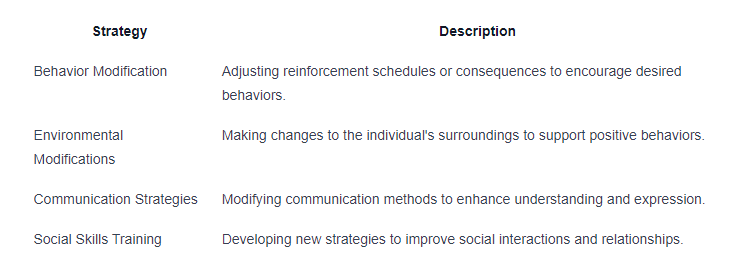
By collaborating with the individual, their family, and the interdisciplinary team, consultants can implement changes to existing strategies or introduce new approaches to address emerging challenges or goals. Regular communication and feedback loops play a vital role in ensuring that interventions are effective and sustainable in promoting positive outcomes for individuals with autism.
Monitoring progress and making adjustments are ongoing processes that require a combination of data-driven decision-making, clinical expertise, and collaborative teamwork. By staying vigilant, responsive, and adaptive, autism behavioral consultants can optimize the impact of their interventions and support individuals with autism in reaching their full potential.
Advocating for Individuals with Autism
Advocacy plays a vital role in ensuring that individuals with autism are supported, understood, and included in society. Autism behavioral consultants are at the forefront of this advocacy effort, promoting inclusion and acceptance while raising awareness and understanding about autism.
Promoting Inclusion and Acceptance
One of the primary goals of autism behavioral consultants is to promote the inclusion of individuals with autism in all aspects of life. This includes advocating for accessible environments, educational opportunities, and employment options that cater to the unique needs of individuals on the autism spectrum.
By working with schools, workplaces, and community organizations, behavioral consultants strive to create inclusive spaces where individuals with autism can thrive and contribute their skills and talents. This advocacy for inclusion helps to break down barriers and stereotypes, fostering a society that embraces neurodiversity and values the strengths of every individual.
Raising Awareness and Understanding
In addition to promoting inclusion, autism behavioral consultants play a crucial role in raising awareness and understanding about autism. Through educational workshops, public speaking engagements, and community outreach programs, consultants work to dispel myths and misconceptions surrounding autism.
By providing accurate information and sharing personal stories, behavioral consultants help to increase awareness about the diverse needs and abilities of individuals on the autism spectrum. This increased understanding leads to greater acceptance and support for individuals with autism, ultimately creating a more compassionate and inclusive society.
Advocating for individuals with autism is a multifaceted endeavor that requires collaboration, education, and empathy. By promoting inclusion and acceptance, as well as raising awareness and understanding, autism behavioral consultants contribute to creating a world where individuals with autism are valued, respected, and empowered to reach their full potential.
Sources
https://www.autismbehavioralconsultants.com/
https://www.autismprograms.com/
https://autism-behavior-consulting.com/
Similar articles
We’re here to help you

Our team is here to assist you in this process. Contact us for any assistance.
it’s easy to apply
We Accept Most Insurances
Our in-network insurance partnerships make ABA therapy more accessible to families throughout our service areas.







Our Insurance Process
We'll request your insurance details to help us verify your plan's coverage for ABA therapy. Once we've received this information, we'll walk you through your benefits, including copayments, deductibles and out-of-pocket maximums, so you know what to expect in advance.
Our team will then handle the preauthorization and all the necessary paperwork.
.svg)




















.jpeg)


































.jpeg)




.jpeg)







.jpeg)











.jpeg)
















